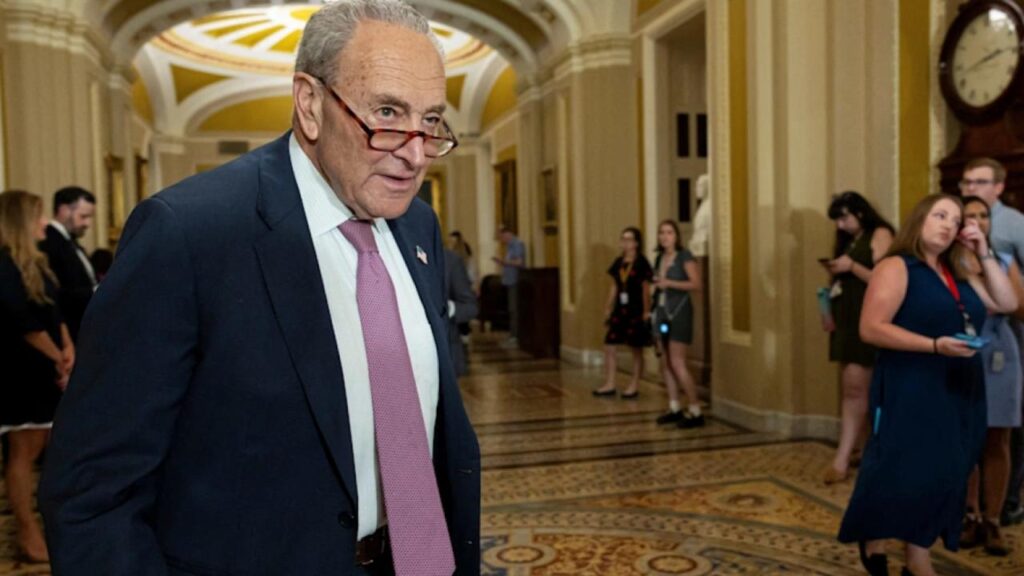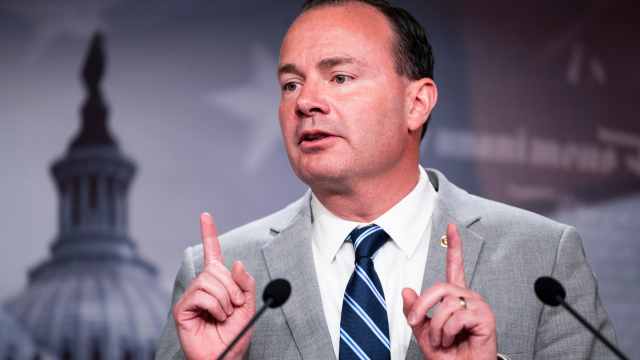Public land in the United States has long been viewed as a treasured resource—vast, beautiful, and protected for the benefit of all Americans. But a new bill introduced by Senator Mike Lee (R-UT) is sparking major controversy, as it aims to fundamentally alter how public lands are managed.
Lee’s proposal could pave the way for selling off large portions of federal lands, which has left many environmentalists, local communities, and policymakers worried about the long-term consequences. Here’s what you need to know about this significant and controversial bill.

Sen. Mike Lee’s Shocking New Bill Could Sell Off Public Land
| Takeaway | Stat/Fact |
|---|---|
| Sen. Lee’s bill proposes the sale of public lands | The bill seeks to privatize millions of acres of federal lands. |
| Public lands are a key contributor to U.S. economy | Outdoor recreation on public lands supports over 5 million jobs annually. |
| Environmentalists oppose the bill | Environmental groups argue that privatization could lead to environmental degradation. |
Senator Mike Lee’s bill represents a bold attempt to reshape how the U.S. manages its public lands. While supporters argue it could bring more local control and economic benefits, opponents fear it could lead to the loss of vital natural resources, wildlife habitats, and recreational opportunities. As the debate unfolds, one thing is clear: the future of public lands in America is at a tipping point, and how we respond will shape the landscape for generations to come.
What the Bill Entails
The bill, titled The Protecting Public Lands Act, was introduced in June 2025. Senator Lee, who represents Utah—a state known for its stunning national parks and public land—has long been a proponent of transferring federal lands to state and private ownership. His new bill takes this idea to a dramatic new level. If passed, it could authorize the sale of millions of acres of federal lands to private buyers or state governments.
While the bill doesn’t specifically outline which lands would be sold, it provides a framework for such transfers, potentially impacting vast swaths of the West. These lands include popular outdoor destinations like national forests, Bureau of Land Management (BLM) lands, and even portions of protected national parks.
For many, the idea of selling public land to the highest bidder is troubling. Critics worry it could result in the loss of public access to beloved natural spaces, and in some cases, lead to environmental harm. These lands could be developed into commercial properties, mined for resources, or even used for oil and gas extraction.
Why Does Mike Lee Want This?
Senator Mike Lee argues that state governments, rather than the federal government, are better equipped to manage public lands. He has long pushed for more local control over land decisions, suggesting that states can make decisions that are more in tune with local needs and values. According to Lee, the federal government’s oversight of public lands often leads to mismanagement, inefficiencies, and even bureaucratic red tape that prevents productive use.
In his press release introducing the bill, Lee stated: “Public lands should be managed in a way that prioritizes local interests and promotes economic development. The federal government’s control over these lands has been detrimental to state economies and the well-being of local communities.”
Lee’s proposal is framed as a way to generate revenue and increase state autonomy over resources. Supporters argue that selling off some lands could provide much-needed funds for state budgets, particularly in the Western U.S., where public lands make up a substantial portion of the landscape.
The Reaction: Concerns and Pushback
While Lee’s bill has some supporters, it has also ignited fierce opposition. Environmental groups, outdoor recreation organizations, and local communities are raising alarms about the potential consequences of privatizing federal lands.
Environmental Concerns
One of the primary arguments against the bill is that it could have disastrous effects on the environment. Public lands in the U.S. serve as critical habitats for wildlife, provide recreational opportunities, and contribute to ecosystem services like clean air and water. If these lands were sold off to private entities, there’s no guarantee they would be protected to the same extent.
“The environmental protections that come with public lands are not guaranteed on private property,” said Michael Brune, Executive Director of the Sierra Club. “If this bill goes through, we could see the degradation of lands that have been preserved for generations.”

Impact on Local Communities
Local communities, particularly in rural areas, also fear the negative impact of such a bill. Public lands provide vital resources for tourism, recreation, and sustainable agriculture. Selling off these lands could result in a loss of jobs and local revenue, which depend on access to these spaces.
For example, the state of Utah relies heavily on outdoor tourism, with millions of people visiting each year to experience the state’s national parks, public lands, and recreational activities. Local businesses, such as tour operators, hotels, and restaurants, thrive on the influx of tourists drawn to these natural wonders. The loss of public lands could jeopardize these industries, leaving many without work.
Political Debate
The bill has also triggered significant political debate, particularly between Western states, where public lands make up a large portion of the landscape, and those in the East. Western Republicans, like Lee, argue that the federal government has overreached in managing lands and that local states should have more control over their natural resources. Conversely, many Eastern Democrats support preserving public lands for the benefit of all Americans, arguing that federal oversight ensures fairness and protection for all regions, not just those with political sway.
How Likely Is It That This Bill Will Pass?
As of now, the bill has not yet made it past committee stages. It faces an uphill battle, with strong opposition from both Democrats and environmental groups. Many analysts believe the bill will struggle to gain traction in a divided Congress, especially with the 2024 elections on the horizon.
However, the bill highlights a growing divide between states that favor more local control over public lands and those that support preserving federal oversight. Given the increasing pressure from local governments, particularly in the West, this issue will likely remain on the table in the coming years.
What Are the Alternatives?
If Senator Lee’s bill fails, there are still several alternatives being proposed to address concerns over federal land management. Many advocates suggest reforms to improve the efficiency and effectiveness of federal land management, such as increased funding for agencies like the National Park Service and the Bureau of Land Management. These reforms could help address issues like land maintenance, overcrowding, and bureaucratic delays without resorting to privatization.
Another suggestion is to expand state-federal partnerships, where states and localities collaborate more closely with federal agencies to manage public lands. These partnerships could ensure that local communities have a greater voice in decisions about land use, while still preserving the long-term benefits of federal protection.
What Can You Do?
For those who are concerned about the potential sale of public lands, it’s crucial to get involved. Contact your local representatives to express your thoughts on the bill and ask them to consider the broader implications of privatizing public lands. Additionally, you can support environmental groups that are fighting to protect public lands. These groups are working tirelessly to educate lawmakers and the public about the importance of preserving our nation’s natural spaces.






